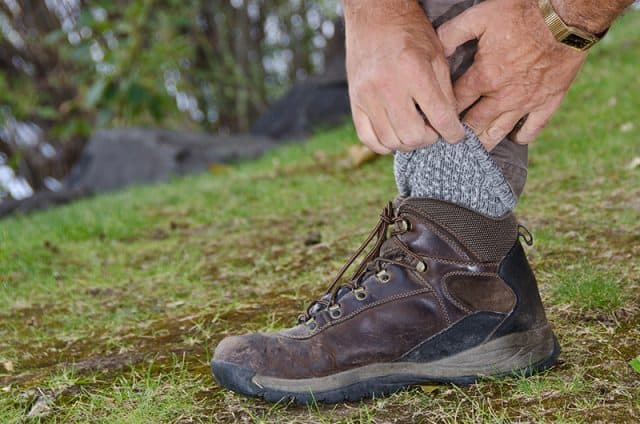Diseases that ticks carry locally is an issue you should be knowledgeable about in Tennessee. Ticks are a major problem throughout the country. There are a number of different species in North America. Most of which have the ability to carry disease.
First of all, these specific species in Tennessee have the ability bite and infect us with certain diseases.
Consequently, populations are generally greater in areas where livestock or animals are present. These areas include pastures, fields and forests. Therefore, the more animal populations present, the better chance the tick population can survive. As a result, humans come into contact with ticks when they walk or hike through fields or forest paths.
Common Ticks In Tennessee
The more common ticks in Tennessee and the southeast include the American dog tick, the lone star tick, the brown dog tick and possibly the black legged tick. Each of these species can be responsible for infecting humans with certain diseases. What does a tick look like?
They are small, somewhat oval and have eight legs as adults. They do not fly or jump but crawl up on grasses and shrubs to fall on a passing animals or humans to have a blood meal.
The American dog tick adult is reddish brown with a gray shield on its back. The brown dog tick is a uniform reddish brown with no other markings. The Lone star tick is reddish brown with a single white spot or dot in the middle of its back.
The black legged tick (deer tick) has a lighter orange body, a darker shield on back and dark reddish brown legs.(This species is rare in Tennessee and the southeast.)

Diseases That Ticks Carry
Different tick species can carry different diseases. These are some of the more common diseases associated with ticks in Tennessee and the south ease.
American dog tick– carries tularemia and Rocky Mountain spotted fever. Greatest risk of being bitten is in the spring and summer.
Brown dog Tick– can carry Rocky Mountain spotted fever (Dogs are the primary hosts but may also bite humans)
Lone star tick– ehrlichiosis, tularemia, Bourbon virus, Southern tick-associated rash illness (STARI) and Alpha-gal syndrome (meat allergy) Greatest risk of being bitten is in the early spring spring to late fall. Very aggressive tick to attack humans.
Black legged tick– Lyme disease, ehrlichiosis and other diseases
Tick Disease Symptoms
These diseases have certain signs and symptoms. Furthermore, most all are bacterial infections. To add, the infected person may not have all the listed signs and symptoms.
Ehrlichiosis: Fever, chills, headache, muscle pain, nausea, vomiting, diarrhea and sometimes a rash with children.
Rocky Mountain spotted fever: high fever, headache, malaise, gastrointestinal symptoms and spotted rash on wrists, elbows and ankles. Can be fatal is not treated soon.
Tularemia: Fever, chills, fatigue, cough, sore throat, vomiting, abdominal pain and possibly an ulcerated sore at infection site.
Some Key Factors To Remember About Tick Borne Disease:
- The CDC has reported that ticks capable of carrying lyme disease have been reported in over half of U S counties.
- One tick borne infection can make you allergic to some meats
- Rocky Mountain spotted fever can possibly be fatal if not treated early.
Lyme Disease: This disease has a number of stages over time if untreated. Ring like or expanding rash, flu-like symptoms, sore lymph nodes, later pain in tendons and muscle, arthritis and later neurological problems.
STARI (Southern Tick-Associated RAsh Illness)– some same symptoms as Lyme with a possible rash and flu-like symptoms. Cause of disease unknown at the moment. Some doctors treat the same as treating Lyme disease.
Alpha-Gal syndrome: This is a non bacterial condition that causes a human to have a mild to severe allergic reaction to red meat. Other symptoms include swelling of lips and tongue, coughing and sneezing after eating red meat.
Most all of the tick associated diseases are treated with an antibiotic regimen. Avoid infested areas. In infested areas wear insect repellent and protective clothing.
Also, another thing you should do is always inspect your clothing and body. In contrast, if you have any question you might have an infection from a tick bite, consult a professional physician. Likewise, if you have an emergency about a tick bite that is causing health problems or life-threatening concern, call 9-1-1 immediately.
U.S Pest Solutions & Services
Finally, if you live in a very wooded area or a rural area with large landmass, field, etc., be aware of the possibility of ticks. Furthermore, if you need pest control in Tennessee, be sure to contact U.S. Pest Protection. Most noteworthy, ask about our pest control tick prevention services. We offer the best in Tennessee and are rated #1 in Nashville.
CONNECT WITH US!
Connect with us on YouTube and follow us on social media! Facebook | Twitter | Instagram | LinkedIn or Contact Us today!

